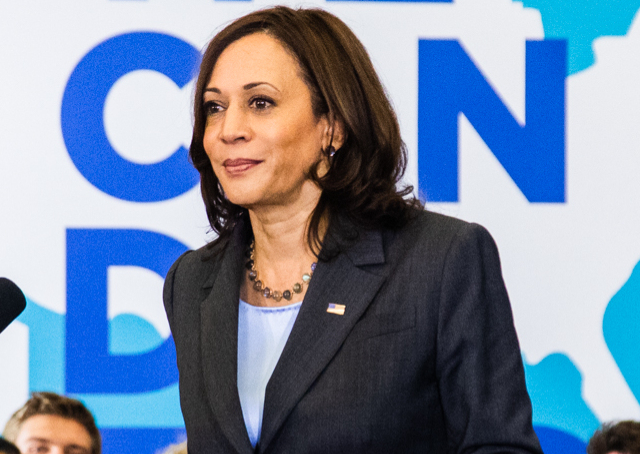Guest Columns
It’s Close, But the Signs Aren’t Good for Harris
Kamala Harris looks to lose this election, because she is not where she needs to be in order to win even a close race.

Kamala Harris looks to lose this election, because she is not where she needs to be in order to win even a close race.
With less than two weeks until Election Day, the publicly available data continues to suggest a closer race than any election I’ve covered.
The race is still close
Although our poll averages show Donald Trump winning by 312 electoral votes to Vice President Kamala Harris’ 226 electoral votes, this doesn’t tell the full story. In the key battleground states, four of Trump’s leads are under a single decimal point: As of this writing, 0.8% in Pennsylvania, 0.4% in North Carolina, 0.4% in Wisconsin, and 0.9% in Michigan. Another three races show a lead of fewer than three points: Michigan (1.2), Arizona (1.8), and Georgia (2.5). It wouldn’t take a significant poll error for Harris to win.
As I give pre-election speeches and talks, though, I’m discovering that people find that answer – “It is close” – strangely unsatisfying. One thing I’ve learned through years of doing this job is that people have a difficult time dealing with uncertainty.
You can see this in the reactions as various forecasting models have shifted over the past few weeks. Over time, the difference between a 53% chance of an outcome and a 47% chance of an outcome can be meaningful. That’s roughly the difference in chances of winning between card counting in Blackjack and running basic strategy, which can nevertheless cost casinos enough money over the long haul to get people banned from casinos.
But for a single realized outcome? The difference is effectively meaningless. This race is close. Yet crossing that 50% threshold has deep psychological meaning for people, which leads to the freakouts and recriminations that come with those thresholds being crossed.
Harris is not where she needs to be
Nevertheless, people want answers, so aside from the insistence that “it is close and could go either way, and I mean that,” I do think Trump is likely the favorite.
The reason has nothing to do with early voting. I’ll have more to say about this later, but I’ve long considered reading early-voting tea leaves to be a dead end. But I think there are more tangible indicators that, if forced to place a single bet, Trump would be the more likely winner.
I’ve long believed in the rule of thumb: Watch what the candidates are doing, even more so than what the polls are saying. So ask yourself, which candidate is changing her (spoiler alert!) strategy a few weeks before the election? Kamala Harris had famously avoided impromptu interviews while she led over the summer, yet suddenly she is appearing on The View and Fox News (neither of which went particularly well). Is it a good sign that Barack Obama is on the hustings imploring black men to vote for Harris?
Trump carrying his rallies into enemy territory
At the same time, Trump is holding rallies in places like Coachella and Madison Square Garden. These moves only make sense for Trump if his team thinks he’s in good shape, and he’s hoping to keep the House Republican or perhaps improve turnout in blue states so that he can potentially win the popular vote. Of course, it’s Donald Trump, so there isn’t always a clear method to his madness (perhaps he just always wanted to play the Garden), but in a close race, we read the tea leaves we have.
Second, we can look at the movement in our poll averages. It hardly matters which poll average you look at, whether it is the national polls, or Wisconsin, or Michigan, but all of them show a late break toward Trump. It would be one thing if it were just a state or two, but it really is consistent, across-the-board movement that also holds up comparing pollster-to-pollster. That gives us a fairly high degree of confidence it is “real.”
Trump overperforms his polls
This phenomenon is just a manifestation of something I started to think about after the Democratic National Convention in Chicago. After a month of glowing press coverage (which was reasonable given the circumstances), the glow of a vice presidential pick, and a successful convention, Harris was only up a couple of points – with no one really having landed a glove on her. What would happen when the campaign engaged in earnest and the blows started to fall? Well, something like what we’re seeing. Harris never really took advantage of this time to define herself and her candidacy, which meant there was always a thinness to her support.
Third, there is the possibility that Trump (again) overperforms his polling. I don’t want to make too much of this. It’s true he overperformed – significantly – in 2020 and 2016. But 2020 was a weird year, to say the least, and 2016 was really an instance of pollsters’ techniques being inappropriate to the changing party coalitions.
Harris still lags
Or maybe marginal Trump supporters are characterized by low levels of social trust and are just less likely to answer the phone than other similarly situated individuals. That story has some logic to it and is difficult to correct. Attempts to weight by recalled presidential vote are fraught, however, and could actually lead to an overestimation of Trump’s strength. Regardless, assuming he’ll overperform this time is an awful lot to hang off of effectively two observations. We might put a little bit of a thumb on the scale on this basis. But in a close race, that’s enough.
If you’re through this thinking, “That is some thin gruel,” I agree! As I said, the real answer is, “This is a close race that could go either way.” I might add: “We probably won’t have a better sense of things until the election returns start drifting in.” I’d also note that it’s hard for me to find small “tells” pointing in the other direction. So, if I had to play a hand, I’d rather play his than hers. But the better bet for now is to just walk away from the table and wait.
It’s close. Real close.
This article was originally published by RealClearPolitics and made available via RealClearWire.
Sean Trende is senior elections analyst for RealClearPolitics. He is a co-author of the 2014 Almanac of American Politics and author of The Lost Majority.
-

 Accountability2 days ago
Accountability2 days agoWaste of the Day: Principal Bought Lobster with School Funds
-

 Constitution2 days ago
Constitution2 days agoTrump, Canada, and the Constitutional Problem Beneath the Bridge
-

 Executive20 hours ago
Executive20 hours agoHow Relaxed COVID-Era Rules Fueled Minnesota’s Biggest Scam
-

 Civilization20 hours ago
Civilization20 hours agoThe End of Purple States and Competitive Districts
-

 Civilization4 days ago
Civilization4 days agoThe devil is in the details
-

 Executive4 days ago
Executive4 days agoTwo New Books Bash Covid Failures
-

 Civilization3 days ago
Civilization3 days agoThe Conundrum of President Donald J. Trump
-

 Executive4 days ago
Executive4 days agoThe Israeli Lesson Democrats Ignore at Their Peril




